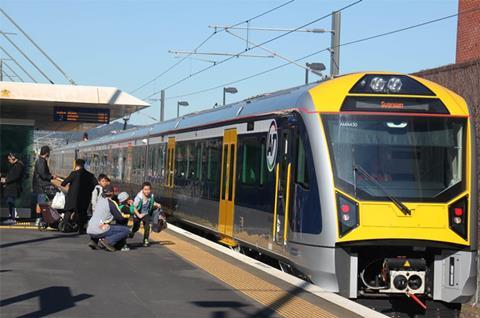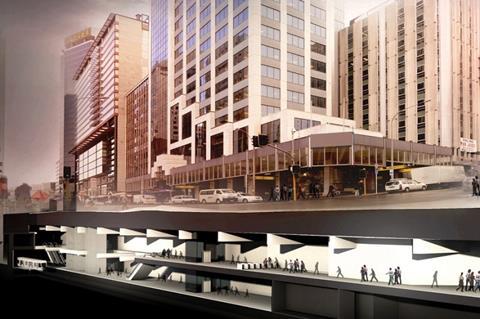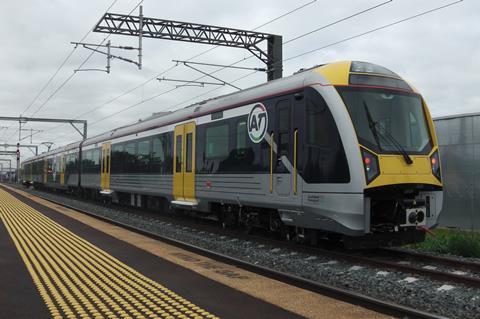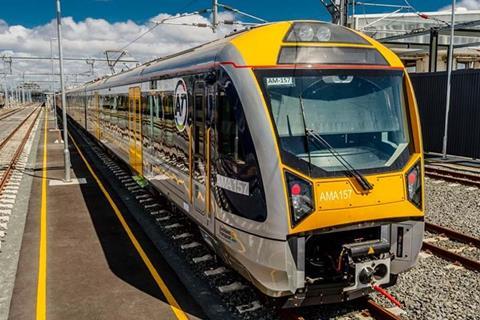
NEW ZEALAND: Auckland Transport has selected the Auckland One Rail 50:50 joint venture of ComfortDelGro Transit and UGL Rail for the next contract to operate the city’s passenger rail services. A revised delivery model is designed to reduce interfaces and maximise the benefits of NZ$7bn of ongoing investment including the City Rail Link, Papakura – Pukekohe electrification and the purchase of additional EMUs.
The Aka Tangata consortium of Transdev NZ, John Holland NZ and CAF NZ had also bid for the contract.
‘The robust procurement process ensured AT was able to secure a competitive contract, despite the effects of the global pandemic on the international rail sector’, said AT Chair Adrienne Young-Cooper when the winner of the contract was announced on August 27.
New delivery model

The services are currently operated by Transdev Auckland under a contract which has been in place since 2004 and, following several extensions, is set to expire in March 2022.
The network comprises four 1 067 mm gauge lines totalling 125 km with 42 stations, 72 three-car electric multiple-units and eight diesel multiple-units. This will grow to 44 stations and 95 EMUs with the opening of the City Rail Link in 2024, which is expected to result in a significant increase in rail patronage. Before the pandemic annual ridership had reached 21 million, up from just over 2 million in 2000.
The new contract is worth around NZ$130m/year over the initial an eight-year term, which can be extended. The incoming operator will take over the existing Transdev Auckland operating company, with staff retaining existing terms.
AOR will be responsible train operations including the provision of drivers and other train staff, development of timetables, station operations and maintenance, security, customer-facing activities and revenue protection.
It will also take over responsibility for train maintenance from 2025, and is to establish an additional depot in south Auckland with targeted employment of Māori and Pasifika into trades and engineering apprenticeships.
‘The prime driver for moving to a more vertically-integrated model is to reduce organisational interfaces and to improve customer and safety outcomes’, said Young-Cooper.
‘While cost savings were not the primary outcome sought, the pricing received through this very competitive procurement process has resulted in savings over current costs.’
Performance measures

A Service Reliability KPI is designed to incentivise the franchisee to run services on time as well as meeting other operational requirements, including the correct origin and destination stations, planned stopping pattern and correct capacity.
A Service Punctuality KPI is based on services being ±5 min of scheduled time at key stations.
A Customer Satisfaction KPI will be based on the results achieved in a customer surveys covering operational performance and station and rolling stock presentation.
Service that Aucklanders will want to use

‘Aucklanders have told us they want frequent and reliable public transport to travel around our city’, said Mayor Phil Goff. ‘Ensuring we have a world class and experienced rail franchise operator is an important part of providing an outstanding rail service that Aucklanders will want to use and can rely on.’
ComfortDelGro provides public transport services in seven countries, with its SBS Transit subsidiary operating two metro lines and a light rail system in Singapore where the company is based.
Managing Director Yang Ban Seng said the Auckland win ‘marks a very significant milestone in our history. It not only represents our first rail operation outside of Singapore but also our maiden entry into New Zealand. We are excited to leverage our experience of operating and maintaining Singapore’s world-class MRT system and are looking forward to delivering connected, safe and reliable customer journeys for Auckland’s travelling public.’
UGL Managing Director Doug Moss said that his company was ‘Australasia’s largest rail services operator and maintainer. We operate and maintain rail networks in NSW, Victoria, South Australia and the ACT, and maintain rolling stock across Australia. We look forward to leveraging our expertise for the benefit of the users of the Auckland rail network, and developing a strong relationship with our client, Auckland Transport.’
- Auckland Transport is working with national railway KiwiRail to address rolling contact fatigue that led to widespread speed restrictions. A report has blamed ‘historic underinvestment’ in the track, with factors including insufficient grinding, poor underlying track condition, the design of the EMUs, the wheel-rail interface and also the climate. ‘Funding was provided to enable electrification, the double tracking on the Western line, new stations and to buy new electric trains, which led to a huge increase in demand with hundreds of additional services and tens of thousands more passenger journeys made on Auckland’s network’, said KiwiRail Chief Operating Officer Todd Moyle. ‘However, the funding for renewal and maintenance of the tracks themselves was left behind.’

















